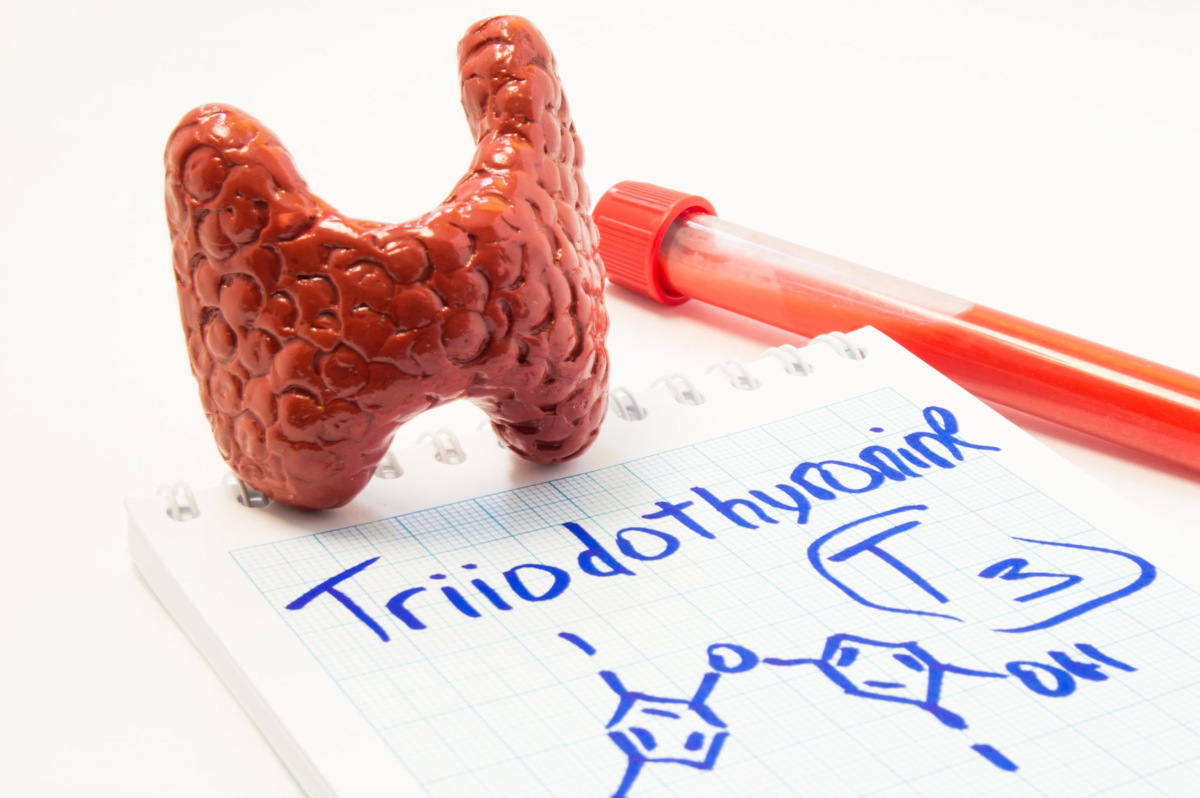No products in the cart.
Hormones
What Causes Reverse T3
What is T3?
T3 (Triiodothyronine), is the most active thyroid hormone, that gives you energy throughout the day, and is created by the body’s conversion of T4 (Thyroxine).
This is why doctors will often prescribe a T4 only medication (e.g. Levothyroxine) for patients who are hypothyroid, because the T4 will be converted to T3 by the body which in turn alleviates the symptoms of hypothyroidism.
However, not everyone’s body works perfectly, and some people do not convert T4 into T3 effectively, and instead create an inactive form of T3, known as Reverse T3 (RT3).
High levels of RT3 can cause real issues with the thyroid and energy levels as it actually blocks the T3 that our body needs and relies on to feel good.
What Causes Reverse T3?
There are many things in life which can cause our bodies to create RT3, however some of the most common causes are stress, inflammation, and very low carb diets.
Stress: When people experience stress, especially chronic stress, their cortisol levels are raised well above normal much of the time, and high cortisol interferes with the body’s ability to convert T4 to T3, instead producing high levels of RT3.
It’s not surprising that many people suffer from on-going, high levels of stress, but finding ways to reduce this is very important for overall health, and in particular thyroid health.
Chronic Inflammation: Inflammation happens when the body’s immune system becomes overactive because it is responding to an underlying health condition.
It is very common for someone to experience the symptoms of inflammation (fatigue, brain fog, gut issues, pain etc.) but have no idea what the body is actually responding to.
For example, it could be heart disease, cancer, or an auto-immune disease. The result however is inflammation and this can cause high levels of RT3.
Very Low Carb Diets: For the thyroid to function effectively, and convert T4 to T3, it needs glucose.
When we starve the body of glucose by way of a very low carb diet (putting the body into ketosis), the body will find alternative sources of energy, but in the process, severely down-regulates thyroid hormones.
One of the ways that it does this is by producing RT3. So for someone who already suffers from hypothyroidism, entertaining a drastic reduction in carbs is a bad idea.
Will Taking Thyrovanz Cause Reverse T3?
This is a common question, however the answer is no. Thyrovanz – or any other natural thyroid glandular – will not cause RT3 issues, because the problem is with T4 conversion and the RT3 that the body is already producing.
However, if someone is converting T4 to RT3 instead of T3, introducing more T4 into the body can increase the levels of RT3, and this will happen no matter what the source of T4.
For this reason, if someone has high RT3 levels, it is best to address the root cause of the RT3 instead of continually increasing the thyroid dose trying to feel better.
The other option is to supplement with a T3 only medication like Cytomel, although this is still not addressing the cause of RT3 and can be difficult to manage.
Conclusion
High levels of Reverse T3 are not ideal and are an indication of thyroid dysfunction.
Finding the underlying issue linked to RT3 can be daunting simply due to the large number of potential causes, however this is the only way to bring thyroid hormone levels back into balance and restore quality of life.

